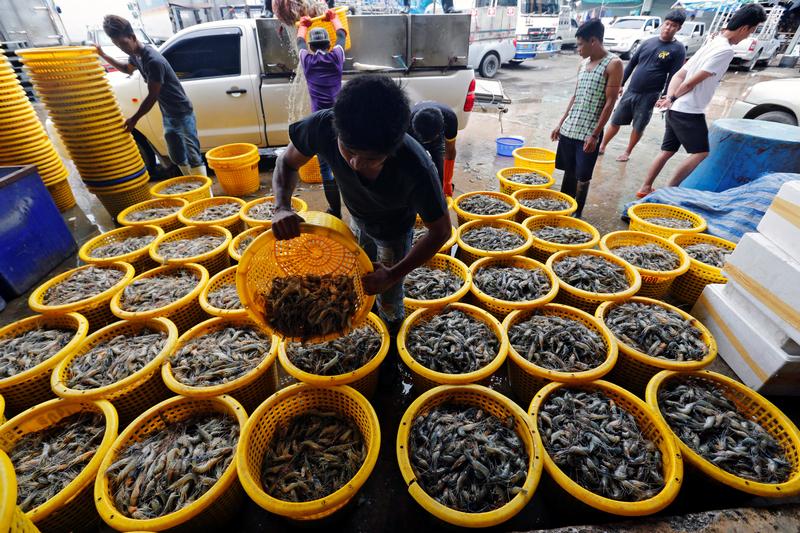The World Bank is urging ASEAN member countries to ease labour restrictions so migrant workers can earn money overseas to boost welfare and deepen economic integration.
Migration is growing at a faster rate in ASEAN than within any other region globally, according to one of the bank’s cartoon-filled reports released Monday entitled “Migrating to Opportunity.”
Between 1995 and 2015, 6.5 million migrant workers in the ASEAN bloc left their homeland to find better opportunities in neighbouring countries, the report showed.
People from Burma, Laos and Cambodia were most likely to head to Thailand while Malaysians and Indonesians tended to venture to Singapore, it said.
Their total remittances in 2015 stood at $62 billion, accounting for 3 percent of the value of GDP in Cambodia, 5 percent in Burma or 10 percent in the Philippines.
Yet the World Bank report states the region could have reaped more benefits if hurdles had been cleared including the high cost of labour mobility, restrictions on workers, and welfare-related problems.
“With the right policy choices, sending countries can reap the economic benefits of out-immigration while protecting their citizens who choose to migrate for work,” said Sudhir Shetty, the World Bank’s chief economist for the East Asia and Pacific region.
“In receiving countries, foreign workers can fill labour shortages and promote sustainable economic growth if migration policies are aligned with their economic needs,” he added.
“Inappropriate policies and ineffective institutions mean that the region is missing opportunities to gain fully from migration.”
Critics say restrictions lead to costly and lengthy recruitment processes.
“We are talking about more than 10 steps for migrant workers to deal with. We are talking about redundancies of agencies and processes,” said Mauro Testaverde, a World Bank economist and lead author of the report.
“No matter where workers wish to migrate to in ASEAN, they will face mobility costs several times the annual wage,” he said.
“Improvements in the migration process can ease these costs for prospective migrants and help countries respond better to their labour market needs,” he added.
By reducing the cost of mobility, the report found, welfare could rise 14 percent for highly skilled workers and 29 percent overall.
The report suggested some policy changes including more oversight of recruitment agencies and a streamlining of registration processes.
Countries can also learn from one another, for example taking a cue from the Philippines, which has good social support and network systems that help migrant Philippine workers adjust and get better protection when working overseas.
The bilateral agreement between Malaysia and Bangladesh to reduce the cost of mobility is another good example of how illegal migration can be curbed because migrant workers from these countries have no need to use illegal job recruitment agents.
[related]
The report suggested Indonesia could streamline its official agencies while Vietnam could promote a better migrant worker policy.
Singapore could do more to enhance welfare and help migrant workers assimilate, it said, adding that Thailand should formalise undocumented workers and make the entry process cheaper.
Thailand should also improve welfare and protection for migrant workers, the report said.
It also urged governments to change their attitude toward migrant workers.
Shetty said such restrictive policies result from fears that migrant workers steal jobs from locals. In contrast, the report said Thailand’s GDP would drop 0.75 percent without them.
This story was originally published by the Bangkok Post here.



